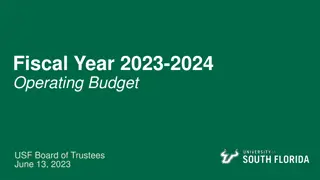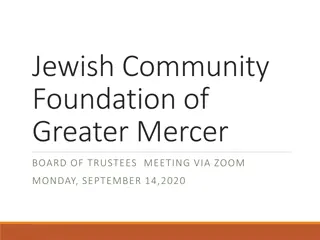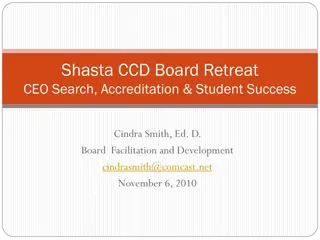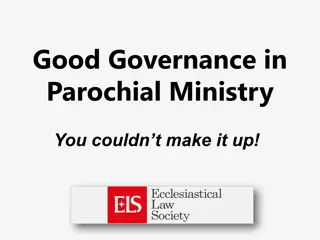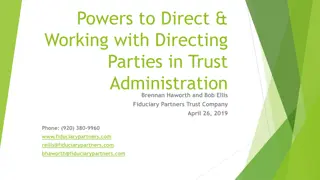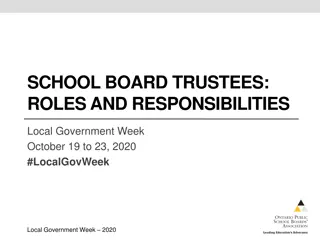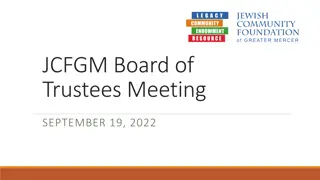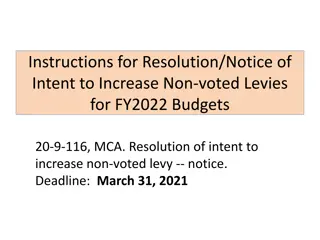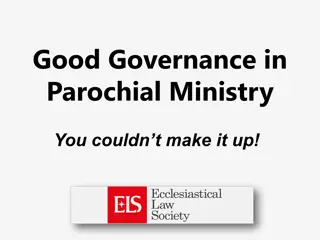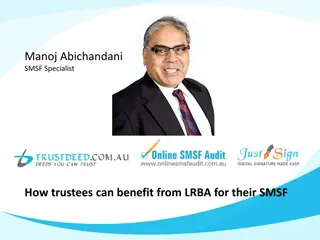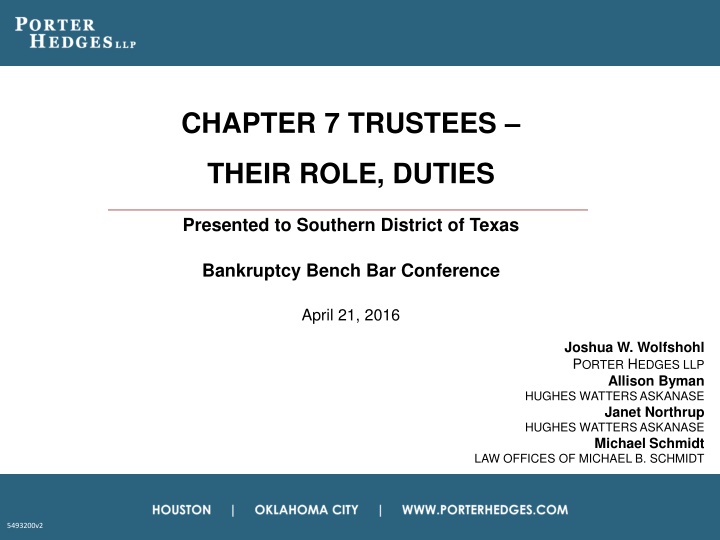
Chapter 7 Trustees: Role, Duties, and Unique Responsibilities
Explore the essential role of Chapter 7 trustees in bankruptcy proceedings, focusing on their duties, initial case review, handling business debtors, exemptions issues, estate claims, compromises, and unique responsibilities. Gain insights into the complexities trustees face and the importance of balancing various interests in the bankruptcy process.
Download Presentation

Please find below an Image/Link to download the presentation.
The content on the website is provided AS IS for your information and personal use only. It may not be sold, licensed, or shared on other websites without obtaining consent from the author. If you encounter any issues during the download, it is possible that the publisher has removed the file from their server.
You are allowed to download the files provided on this website for personal or commercial use, subject to the condition that they are used lawfully. All files are the property of their respective owners.
The content on the website is provided AS IS for your information and personal use only. It may not be sold, licensed, or shared on other websites without obtaining consent from the author.
E N D
Presentation Transcript
CHAPTER 7 TRUSTEES THEIR ROLE, DUTIES Presented to Southern District of Texas Bankruptcy Bench Bar Conference April 21, 2016 Joshua W. Wolfshohl PORTER HEDGES LLP Allison Byman HUGHES WATTERS ASKANASE Janet Northrup HUGHES WATTERS ASKANASE Michael Schmidt LAW OFFICES OF MICHAEL B. SCHMIDT 5493200v2
INITIAL CASE REVIEW AND ACTION ITEMS Schedules/Disclosure i. Bank Accounts ii. Tax Returns Outstanding/Refunds iii. Non-exempt Real Property iv. Business Interests v. Miscellaneous Non-exempt Personal Property 2
Business Debtors i. Operating vs. Non-operating 1. Should Trustee Seek to Operate Under 721? ii. Best Sources of Information 1. Debtor s counsel 2. Debtor s principals 3. Books and Records of Company 3
Business Debtors (continued) iii. Securing Assets 1. Cash, inventory, equipment 2. Accounts Receivable notifying account debtors 3. Real Property Leases a) Negotiating with landlords b) Sale or auction held at leased premises? c) Mitigating exposure to post-petition administrative rent vs. running orderly sale process 4
Business Debtors (continued) iii. Selling Assets 1. What constitutes adequate marketing under chapter 7 time constraints 2. Sales to insiders 3. Motion to Sell subject to higher and better offers 5
EXEMPTIONS Homestead Issues Under Federal Exemptions (recent cases Isgur opinion); Trustee must object if $ amount of exemption is not specified? The Frost Dilemma Cody Smith and Greg Hawk cases and Trustee s duty to monitor the Debtor s exempt property even after discharge is entered and exemptions are allowed 6
ESTATE CLAIMS AND COMPROMISES UNDER RULE 9019 Trustee s duty to take into account reasonable views of creditors Other factors to consider when settling estate claims 7
TRUSTEES UNIQUE DUTIES IT S NOT ALWAYS ABOUT MAXIMIZING DISTRIBUTIONS Bringing Claims under 727 i. Duty to pursue ii. Weighing costs and benefits of 727 action 1. Should be assessed on a case by case basis 2. Should assess costs and benefits throughout the case iii. Consultation with creditors Standard for settling 727 claims Securing medical records in healthcare case, wells/platforms in oil & gas cases, winding down 401(k) programs and other benefits plans iv. Duty to report criminal and unethical conduct 8


